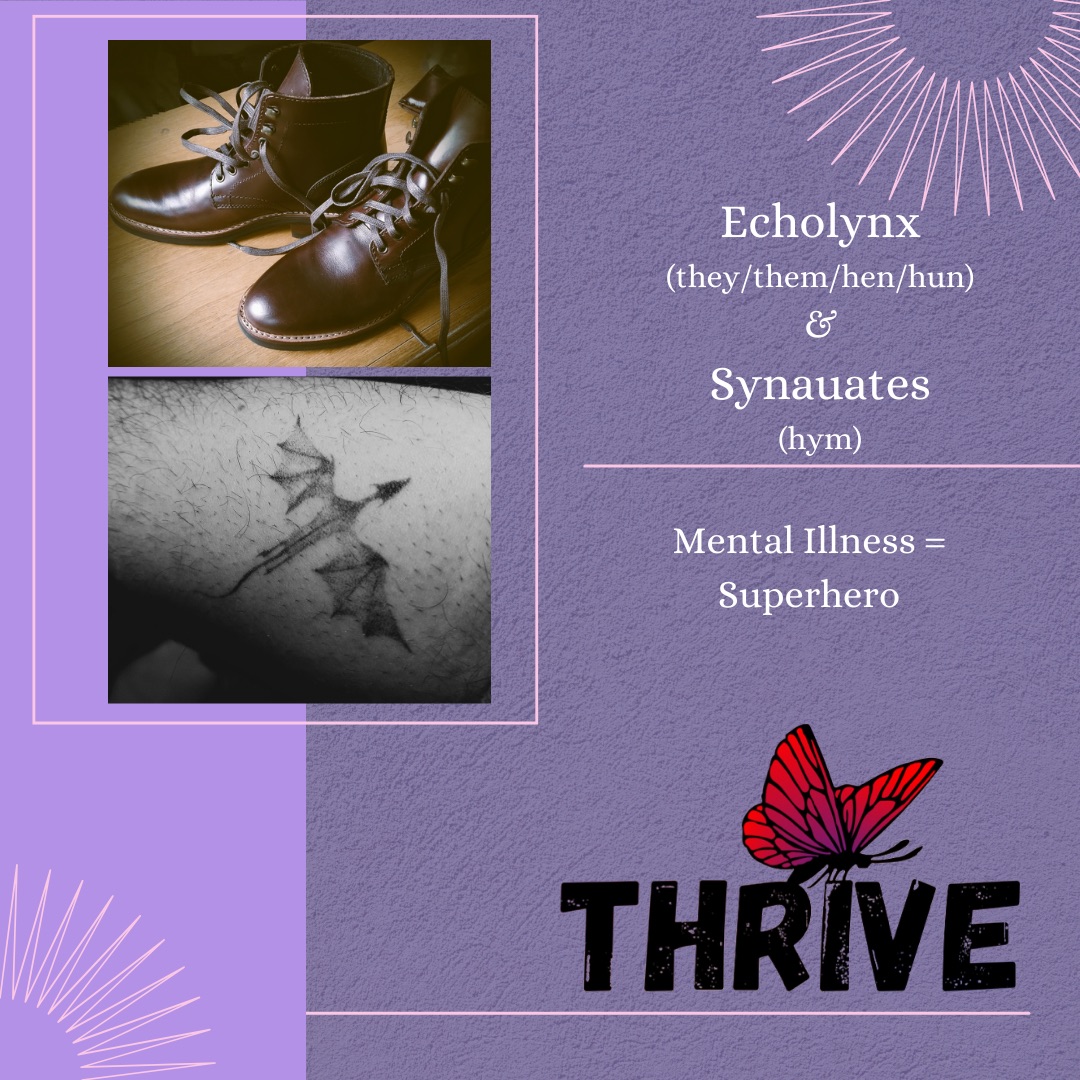
We are excited to host
Echolynx
(they/them or die/hun)
Echolynx, or just Echo (they/them or hen/hun) is a longtime kinkster with a passion for the abolishment of injustices faced by marginalized kinksters in overlapping communities. They are an organizer and an educator by nature and a lynx in practice; small, curious, and independent. Echo identifies as agender, queer, and a disabled slave. Echo has been a rigger for over a decade and loves connection with others and is most passionate about self-suspension, leather care, and service. Echo uses their personal and professional experience to engage with their communities (kink and otherwise) by working towards social equity, racial and disability justice, and intentional intersectionality for both kink and diversity.
Thank you for your interest and your support of THRIVE! Because THRIVE is 100% free, we ask that you pay it forward by donating to our speakers.
Echolynx accepts support through PayPal (K.betweenthelines@gmail.com)
If you enjoyed Echolynx, you can follow them on Instagram (Kailynx4) Fetlife (Echolynx) and Thinkbetweenthelines.org
If you would like to support THRIVE’s efforts, consider picking up THRIVE swag at https://www.redbubble.com/people/DevynStone/
Who will be presenting:
Mental Illness = Superhero
Class Description
Our society tells us that when we live with mental “illnesses” that we are responsible for making sure that it doesn’t impact our day-to-day lives and especially that it’s not a part of our relationships. In kink spaces, especially, where RACK, SSC, and other acronyms are part of our ways to maintain safety within our personal spaces and local communities, we’re taught that mental illnesses have no place. Join Echo and Synuates as they flip the script to examine how it’s not only possible, but more inclusive and ultimately ideal to use mental illness diagnoses to create greater empowerment in kink spaces and relationships. In this participatory workshop, we recognize that there are a few more commonly accepted neurodiversities (Autism, ADHD, General Anxiety, etc.); as such we will be primarily focusing on the less commonly accepted neurodiversities.